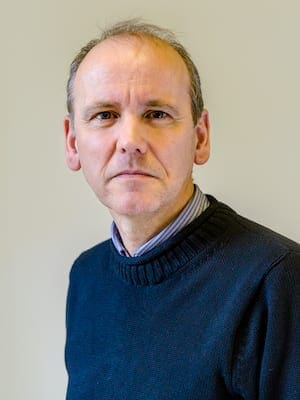The United Kingdom’s first Interfaith Week wrapped up on Nov. 21. While it is too early to describe it as a custom more honored in the breach than in the observance, it’s unlikely to draw a warmly enthusiastic response from many Baptist churches.
Interfaith engagement is one of those tricky issues like homosexuality, which as Glen Marshall sagely observes we deal with badly or not at all.
Cranbrook Baptist Church is featured on the front page of The Baptist Times because it’s unusual (not unique, of course), not because it’s typical.
This is entirely understandable. There’s a spectrum of interfaith engagement ranging from confrontational conversionism (your religion is false, mine is true and I am going to convince you I’m right) to syncretism (a little bit of this, a little bit of that, like one of Scott Williamson’s mouthwatering recipes, and you have the perfect spiritual diet).
Elsewhere on the spectrum are the parallel ladders theory (we’re all going to heaven, for a given value of heaven, just by different routes) and – most commonly found among Baptists – kindly but rather guilty avoidance (we don’t really want to convert you, but we feel that we should, and if that’s what it’s all about we’d rather not get involved).
Shahid Malik, member of Parliament for Dewsbury and minister for communities, gave the Interfaith Week lecture of the Council of Christians and Jews in the House of Lords on Nov. 16.
For anyone expecting a well-crafted lecture on the principles of community cohesion and the role of faith therein, it may have been something of a disappointment. But he did have some telling anecdotes to share and was a little more frank and forthcoming than we expect our rising young politicians to be. We celebrate diversity, he said, but we need to move beyond that and celebrate our commonality; we have to move on from mutual tolerance to mutual acceptance.
Malik has something to say to us here, perhaps. It is worth asking whether, in our complex, socially and religiously divided society, characterized as it is by tension, misunderstanding and sometimes outright violence between communities, it is worth simply parking our theological difficulties for a while.
It might, perhaps, be wise for us to step aside from that uncomfortable third sentence in the Baptist Union’s Declaration of Principle: “That it is the duty of every disciple to bear personal witness to the Gospel of Jesus Christ, and to take part in the evangelization of the world.” Not permanently, just until we know what we’re doing.
In the meantime, bearing in mind that we are citizens as well as Christians, might we consider making an effort to encounter people of other faiths simply as people, rather than as Muslims, Sikhs, Hindus or whatever? Malik spoke of the liberation he felt, as one born and bred in England but of Asian parents, on realizing that he was, in fact, thoroughly English. Isn’t that (insert the nationality of your choice) a potentially fruitful ground on which to meet?
And, of course, we don’t really leave theology behind us. If, as Christians, we reach out the hand of friendship across religious divides, we do so in the name of Christ. Because he was sure enough of his relationship to his Father to be counter-culturally kind to a Samaritan, a Canaanite and a Roman – a heretic, an alien and an oppressor – surely a cup of tea isn’t out of the question?
Interfaith engagement is set to be the focus of a considerable quantity of reflection initiated by the Baptist Union Council over the next few months. There can be no doubt as to the importance of this enterprise. We need to recover – if we have lost it – a confidence in who we are because fruitful dialogue is only possible when each side is sure of its own identity.
The possibilities for widening our understanding and our sympathies are very exciting if churches will rise to the challenge.
Mark Woods is editor of The Baptist Times.

